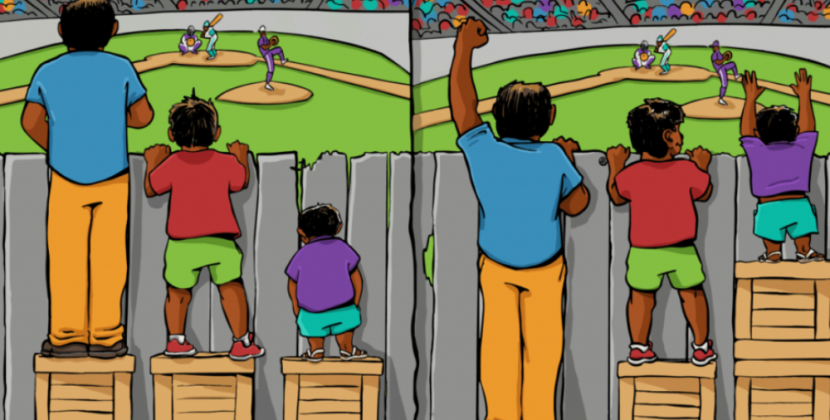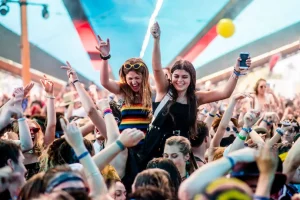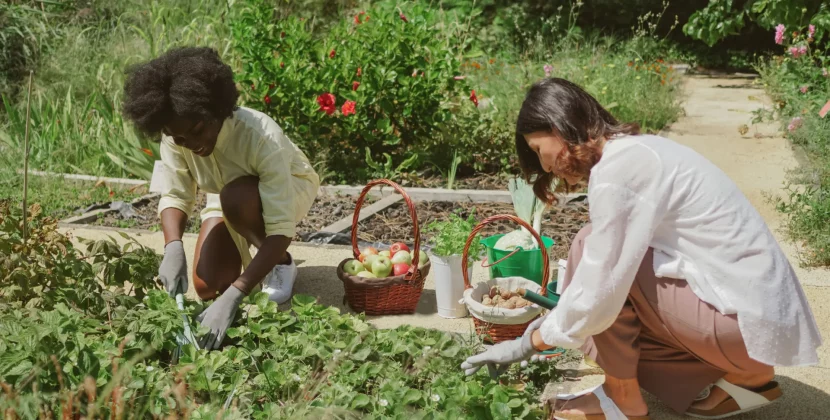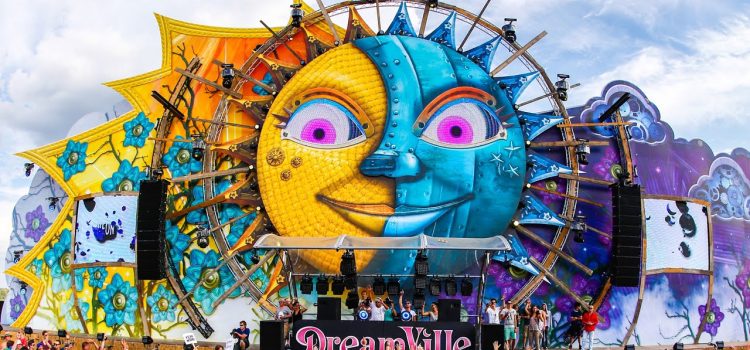
Introduction
Music festivals have long been a cornerstone of cultural expression, bringing together diverse communities to celebrate art, music, and shared experiences. As we look towards the future, the landscape of these events is set to undergo significant transformations driven by technological advancements, environmental consciousness, and evolving audience expectations. This article explores the future of music festivals, focusing on innovation and sustainability, and how these factors will shape the experiences of attendees and the industry as a whole.
Technological Innovations

-
Virtual and Augmented Reality
Virtual Reality (VR) and Augmented Reality (AR) are poised to revolutionize the way we experience music festivals. VR can transport attendees to immersive, virtual festival grounds, allowing them to enjoy performances from the comfort of their homes. AR, on the other hand, can enhance live events by overlaying digital information onto the physical world, providing real-time updates, interactive maps, and personalized content.
-
Live Streaming and Hybrid Events
The COVID-19 pandemic accelerated the adoption of live streaming, and this trend is likely to continue. Hybrid events, which combine in-person and virtual experiences, offer greater accessibility and inclusivity. Fans who cannot attend in person can still participate in the festival experience, expanding the reach and impact of these events.
-
Advanced Ticketing Systems
Blockchain technology and smart contracts are set to revolutionize ticketing systems, reducing fraud and ensuring transparency. These systems can also facilitate dynamic pricing, where ticket prices fluctuate based on demand, and offer personalized packages tailored to individual preferences.
-
AI and Data Analytics
Artificial Intelligence (AI) and data analytics can enhance the festival experience by providing personalized recommendations, optimizing logistics, and improving crowd management. AI-driven chatbots can assist attendees with real-time information, while data analytics can help organizers make informed decisions to enhance safety and satisfaction.
Sustainability Initiatives

-
Renewable Energy Sources
As environmental concerns grow, music festivals are increasingly adopting renewable energy sources to power their events. Solar panels, wind turbines, and biofuels are being used to reduce carbon footprints and promote sustainability. Festivals like Glastonbury and Coachella have already implemented such initiatives, setting a precedent for others to follow.
-
Waste Management and Recycling
Effective waste management is crucial for minimizing the environmental impact of music festivals. Organizers are implementing comprehensive recycling programs, encouraging the use of reusable containers, and partnering with waste management companies to ensure proper disposal of waste. Composting organic waste and reducing single-use plastics are also becoming standard practices.
-
Sustainable Transportation
Transportation is a significant contributor to the carbon footprint of music festivals. To address this, organizers are promoting carpooling, providing shuttle services, and encouraging the use of public transportation. Some festivals are even offering incentives for attendees who choose eco-friendly travel options, such as biking or using electric vehicles.
-
Eco-Friendly Infrastructure
Festival infrastructure is also evolving to be more sustainable. Temporary structures made from recycled materials, eco-friendly sanitation facilities, and green camping options are becoming more common. These initiatives not only reduce environmental impact but also promote a culture of sustainability among attendees.
Evolving Audience Expectations

-
Inclusivity and Diversity
Modern festival-goers demand inclusivity and diversity in lineups, experiences, and accessibility. Organizers are responding by featuring a broader range of artists, creating safe spaces for marginalized communities, and ensuring that festivals are accessible to people with disabilities.
-
Wellness and Well-Being
The focus on wellness and well-being is becoming increasingly important at music festivals. Attendees are seeking experiences that promote mental and physical health, such as yoga sessions, meditation areas, and healthy food options. Festivals are also prioritizing mental health support and harm reduction services to ensure the safety and well-being of their attendees.
-
Interactive and Immersive Experiences
Today’s audiences crave interactive and immersive experiences that go beyond traditional performances. Art installations, interactive workshops, and experiential zones are becoming integral parts of the festival landscape. These elements create a more engaging and memorable experience for attendees.
-
Community and Connection
The sense of community and connection is a fundamental aspect of music festivals. Organizers are fostering this by creating spaces for social interaction, facilitating community-building activities, and leveraging social media to connect attendees before, during, and after the event.
The Future of Music Festivals: What to Expect

-
The Continued Evolution of Festival Formats
As the world continues to grapple with the effects of the COVID-19 pandemic and other global challenges, the format of music festivals will continue to evolve. Hybrid festivals that combine in-person and virtual experiences are likely to become more common, offering flexibility for both organizers and attendees. These hybrid formats can cater to different audience preferences and provide a more inclusive experience, allowing fans who are unable to attend in person to still participate.
Virtual festivals will also continue to grow, offering unique experiences that complement traditional events. As technology advances, virtual festivals will become more immersive and interactive, attracting a wider audience and providing new opportunities for artists and brands.
-
The Importance of Community and Social Impact
As music festivals evolve, there will be a growing emphasis on community and social impact. Festivals have always been about bringing people together, and this sense of community will continue to be a driving force in the future. However, festivals will increasingly be seen as platforms for social change, promoting values like sustainability, inclusivity, and social justice.
Festival organizers are likely to prioritize partnerships with organizations that align with these values, whether it’s promoting environmental conservation, supporting local communities, or advocating for social causes. Festivals will become more than just entertainment events they will be spaces where people come together to celebrate music, culture, and shared values.
-
Technological Innovations and the Future of Festival Experiences
The future of music festivals will be shaped by ongoing technological innovations. AR, VR, and AI will continue to play a significant role in creating immersive and personalized experiences. Blockchain technology could be used for ticketing, ensuring security and preventing fraud, while also enabling new forms of fan engagement, such as NFTs (non-fungible tokens) for exclusive festival content or merchandise.
Wearable technology and biometrics will also become more integrated into the festival experience, offering new ways for attendees to interact with the event and each other. For example, wearables could be used for seamless entry, cashless payments, and personalized experiences based on biometric data. These technologies will make the festival experience more convenient, immersive, and tailored to individual preferences.
Conclusion
The future of music festivals is bright, with innovation and sustainability at the forefront of this evolution. Technological advancements are set to enhance the festival experience, making it more accessible, personalized, and immersive. At the same time, a growing emphasis on sustainability is driving the adoption of eco-friendly practices that minimize environmental impact. As audience expectations continue to evolve, festivals are becoming more inclusive, diverse, and focused on well-being.
By embracing these changes, the music festival industry can create a future that not only entertains but also inspires and uplifts communities around the world. The fusion of innovation and sustainability will ensure that music festivals remain a vital and cherished part of our cultural landscape for generations to come.










